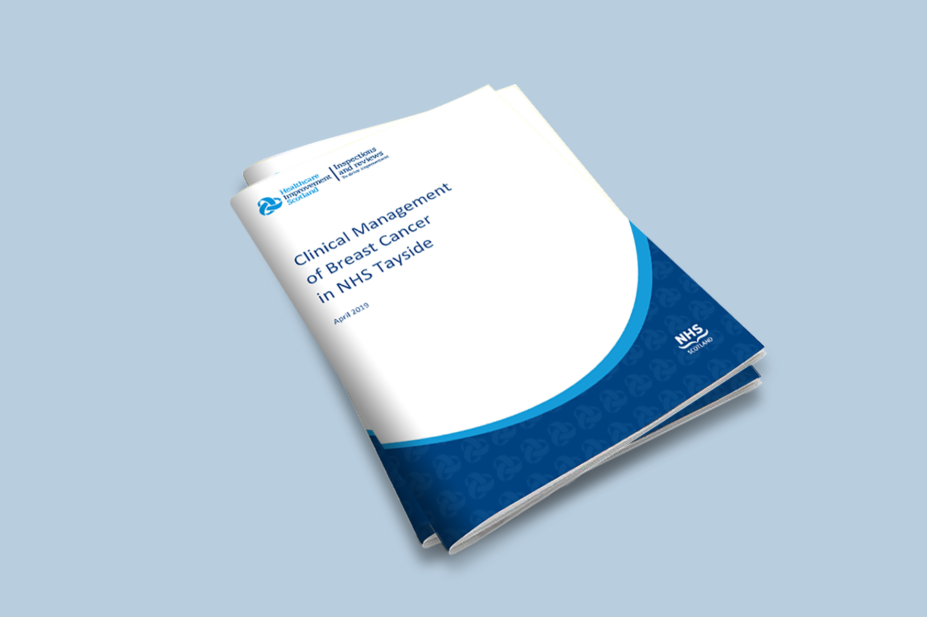
Health Improvement Scotland
Pharmacists at NHS Tayside said they felt “professionally vulnerable” after changes to breast cancer drug dosing were introduced by a consultant breast cancer oncology team, a report by Health Improvement Scotland (HIS) has found.
Among the changes, which were decided by NHS Tayside’s clinical oncology team and implemented in December 2016, was reducing the baseline dose of chemotherapy drug docetaxel down from the widely prescribed 100mg per m2 to 75mg per m2.
According to the report, the dosage change differed from practice at other NHS health boards where “patients would receive 100mg per m2 as a baseline, with dosages reduced, or an alternative evidence-based regimen used if necessary, to meet individual patients’ needs”.
“However, in NHS Tayside, all patients would receive the lower dosage. Some members of the multiprofessional team described the situation as a differing interpretation of existing evidence, or selective consideration of the evidence,” the report added.
The lead pharmacist on the Oncology and Haematology Medicines Management Group — a subgroup of NHS Tayside’s Area Drug and Therapeutics Committee — used the board’s whistleblowing procedure to question the evidence base behind this decision.
The HIS report, published on 1 April 2019, said: “In response [to the concerns raised], they were advised by email that ‘the decision on what chemotherapy and other supportive treatments to give is one for the consultant oncologists’.”
It added that the wider multidisciplinary team at NHS Tayside, including pharmacists and nurses, “also expressed concern that the practice is different to other centres and networks”.
As a result of the decision to reduce dosage, the report said: “Pharmacy and nursing staff indicated that they had felt professionally vulnerable as a result of the change to practice and took steps to seek assurance from their respective senior managers to ensure they had organisational protection to continue delivering the prescribed regimens for neo-adjuvant and adjuvant treatments for breast cancer.”
However, the report added that the NHS Tayside breast cancer oncology consultant team were “firm in their belief that their practice is in the best interests of patients in NHS Tayside”, and that the higher doses were not well tolerated in their patient population.
The oncology team told HIS that they had undertaken an audit, which had shown “unacceptable rates of neutropenic sepsis” when 100mg docetaxel per m2 were used.
The HIS panel, which produced the report, was informed of a separate audit carried out by the pharmacy team which, according to some staff, supported the whistleblower’s concerns. However, the audit was “discounted by the NHS Tayside breast oncologists as, in their view, the methodology was flawed”.
The panel also said that they heard “from a number of professionals that any debate on this issue was stifled due to the ongoing response to the whistleblower’s concerns”.
The HIS report added: “There appears to be a culture within the team where the multiprofessional voice is not being heard.”
As a result, the report recommends that NHS Tayside “consider further work to improve multiprofessional team working”.
Responding to the report, Alex MacKinnon, director of the Royal Pharmaceutical Society Scotland, said it is “essential that health boards work to improve their whistleblowing policies within healthcare, including pharmacy, and provide support and protection to staff who raise concerns”.
“People will not speak up if they fear retaliation or they think that to do so would be futile. Healthcare professionals should feel able to act in the best interests of their patients at all times.”
Rose Marie Parr, chief pharmaceutical officer for Scotland, added: “I recognise that some of the findings of this report are matters of concern. NHS Tayside will now consider what further work might be required to improve multiprofessional team working, and to ensure that the voice of all the professions is properly heard.
“This work with be supported by the expert group commissioned by the chief medical officer and led by Professor Aileen Keel.”


